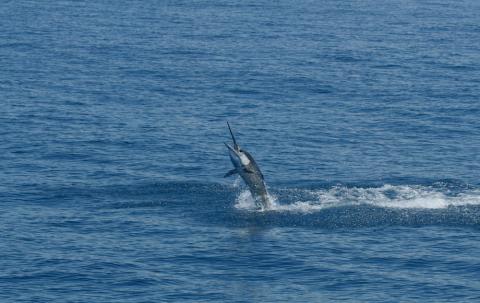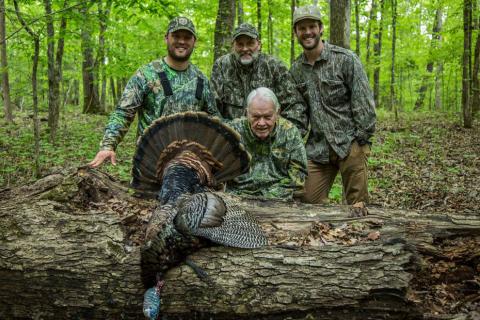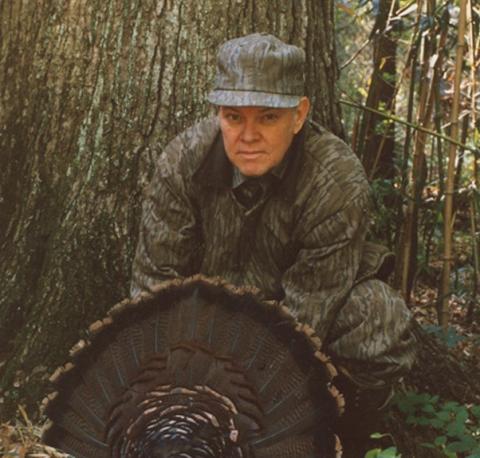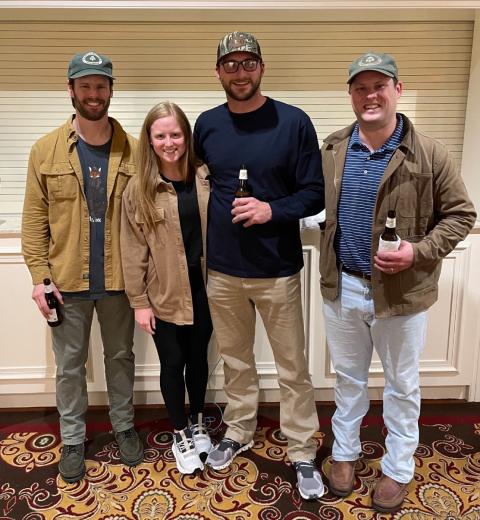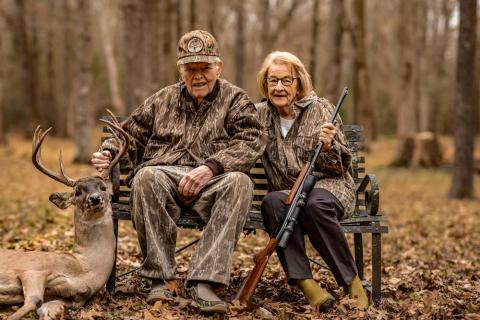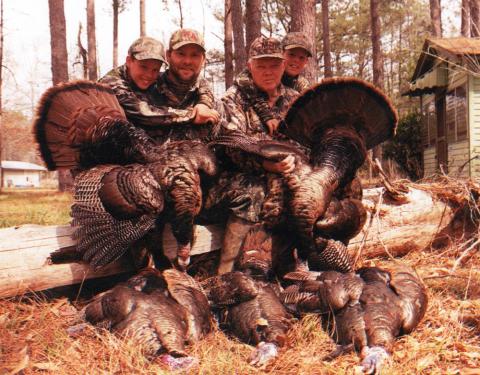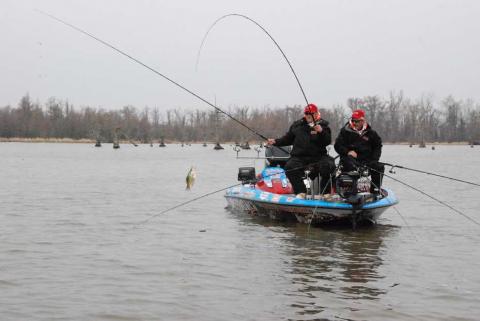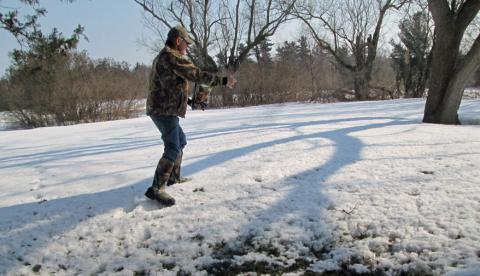provided by John Phillips
Tad Brown of Missouri is a Mossy Oak ProStaffer and has been hunting turkeys for more than 45 years and trapping for 50 years. Turkey populations throughout many areas of the country have been in decline for several years now. Brown believes that the three main reasons may be: loss of habitat, unfavorable weather conditions and increasing predation.
“Hunting clubs, private landowners and hunters can’t stop the loss of habitat or change the weather patterns,” Brown said. “However, by helping reduce the number of predators, especially nest predators, we can influence the growth of turkey populations on the lands we hunt.”
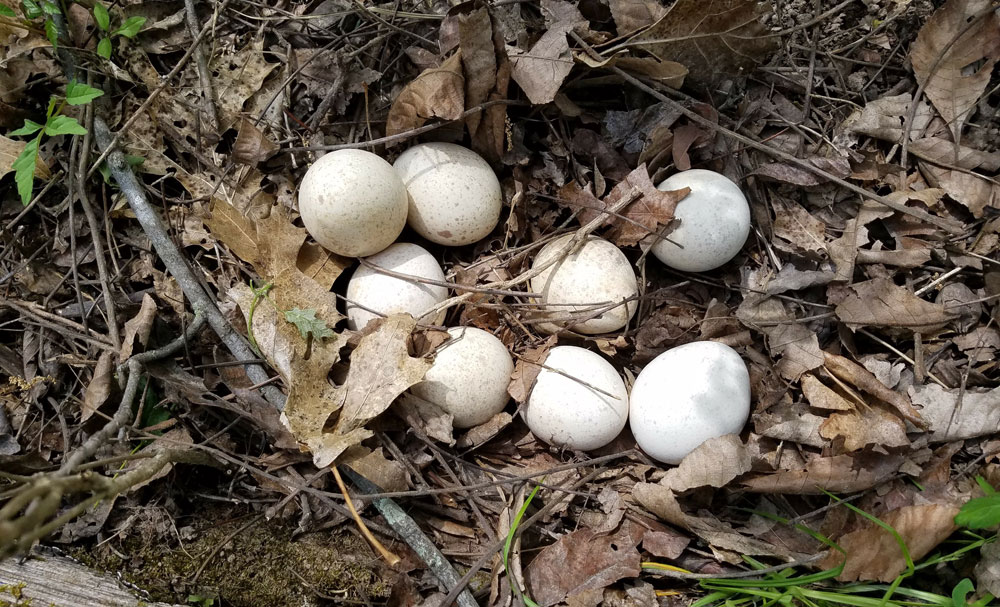
Many hunters believe that the coyote is the worst turkey predator because often when you’re calling turkeys, coyotes will come in to your setup. I’ve had coyotes come running in and attack my turkey decoy. Like many other turkey predators, the coyote is very opportunistic. If he hears a hen yelping or a tom gobbling, and he’s close by and can sneak in through thick cover and get to the turkey before it can run or fly away, he will kill it. But to be honest, he’s not the biggest threat to your local turkey population. I am convinced that raccoons are actually the worst predators on most properties.
Raccoons are very prolific. They breed often and produce numbers of young. Secondly, raccoons have very little if any fur value, so no one’s interested in eliminating them. In the Midwest, a trapper or a hunter may get $3 or $4 for a really big coon skin. However, in the Southeast, fur buyers aren’t even interested in raccoon pelts. For these reasons, there’s no substantial pressure on raccoon populations, and their numbers continue to grow and expand. Third, a raccoon is like a little bear. He’s aggressive, strong and able to muscle a hen off her nest. He easily can kill a hen on her nest and eat her eggs.
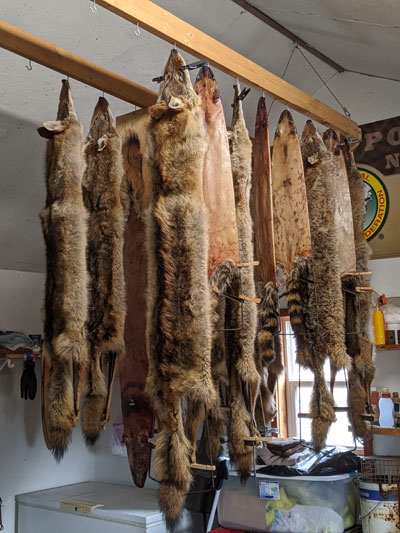 The other advantage of taking coons is that during the fawning season in the spring, raccoons are very efficient predators on deer fawns. A deer fawn may only weigh 6 or 7 pounds, and a big coon can weigh up to 30 pounds. Killing a newborn fawn and eating it isn’t difficult at all for a coon. There’s not a worse predator on chickens than a raccoon. If one gets into a hen house, it more than likely can kill numbers of them and come back every night, until all the chickens are dead. A turkey is just a little bigger than a chicken. At night when the poults aren’t big enough to fly up to a roost, they are easy pickings for a coon. And, even when the poults can fly, a coon has no problem climbing a tree and killing them there. If the coon knocks the poult off the limb, the poult is almost blind at night and incapable of escaping the coon’s attack.
The other advantage of taking coons is that during the fawning season in the spring, raccoons are very efficient predators on deer fawns. A deer fawn may only weigh 6 or 7 pounds, and a big coon can weigh up to 30 pounds. Killing a newborn fawn and eating it isn’t difficult at all for a coon. There’s not a worse predator on chickens than a raccoon. If one gets into a hen house, it more than likely can kill numbers of them and come back every night, until all the chickens are dead. A turkey is just a little bigger than a chicken. At night when the poults aren’t big enough to fly up to a roost, they are easy pickings for a coon. And, even when the poults can fly, a coon has no problem climbing a tree and killing them there. If the coon knocks the poult off the limb, the poult is almost blind at night and incapable of escaping the coon’s attack.
Lastly, raccoons have a highly developed sense of smell. When there’s a heavy dew or rain, the hen and her poults give off a really strong odor. When the weather brings rains in the spring, then a raccoon has an even greater advantage to hunt them. One of my best nights for catching coons and bobcats generally is a night with a heavy rain. Even a domestic cat will get out in the rain and hunt mice at night because of this wet-odor occurrence. For me, a rainy night is the best time to catch the most coons because they are on the prowl and moving more, looking for critters to kill and eat.
People often never think about black snakes and pack rats that will eat turkey eggs. Opossoms and skunks are also very successful at finding turkey nests and eating the eggs. Feral cats and dogs too are more than capable diners on turkey eggs. Another predator that we often overlook is the crow. Like the raccoon, he is an opportunistic predator. If a coon or opossum or any other predator disturbs a turkey nest and runs the hen off leaving the nest exposed, a crow will swoop down, break the egg and eat what’s inside.
As I’ve mentioned earlier, although the coyote may be a big predator of turkeys, it’s not nearly as bad as the raccoon is in terms of reducing the turkey population on any property. As a matter of fact, the Johnny Stewart calls produced by Hunters Specialties has turkey-poult-in-distress calls, gobbler-distress calls, flapping-wing calls and chicken calls. All these calls are very effective at calling coyotes for predator hunters, and coyotes, raccoons and bobcats all will come to those calls. I live in Missouri, and as I’ve mentioned earlier, many times when I’ve been calling turkeys, a coyote will come in to the call. But in my state, killing a coyote during turkey season is illegal.
















